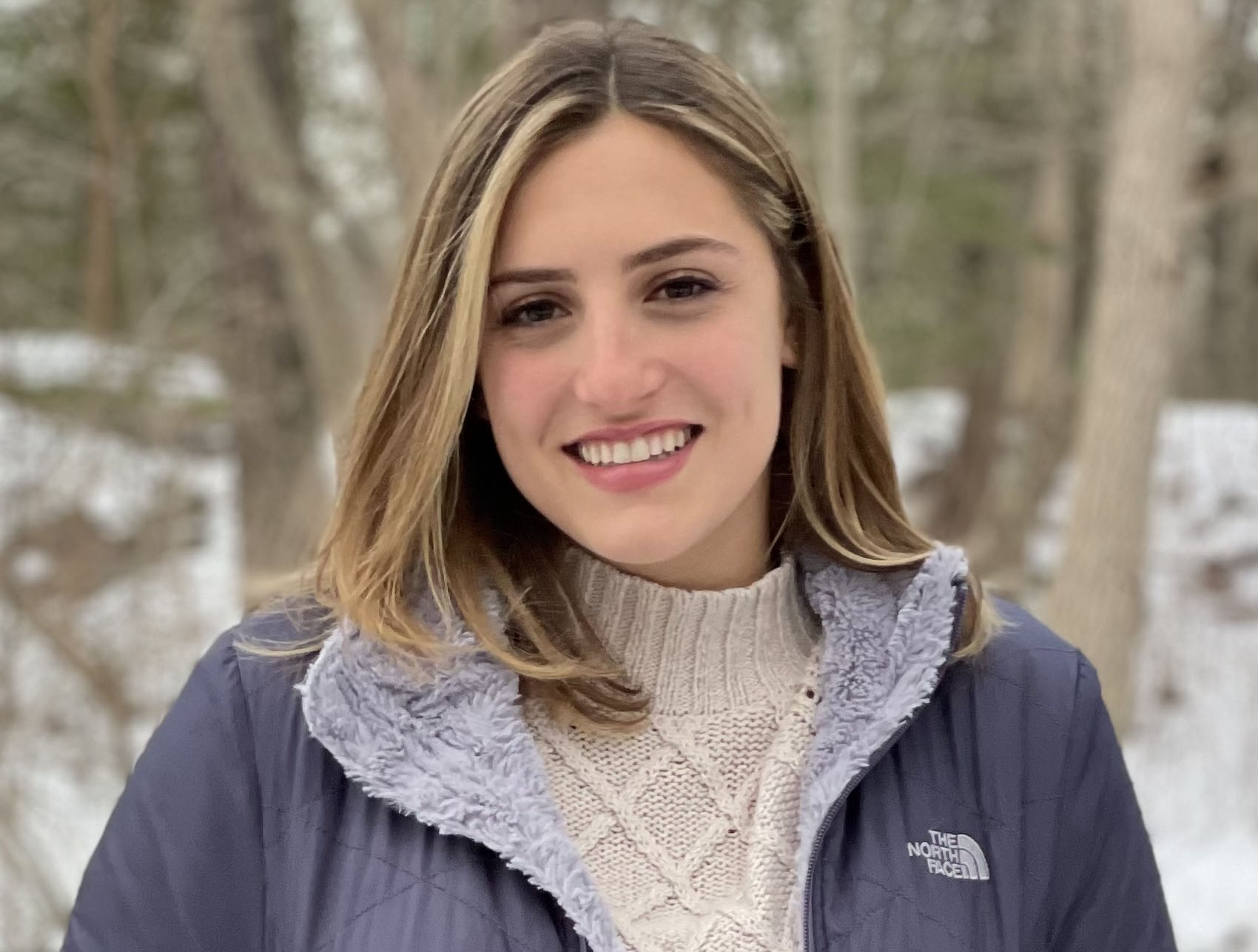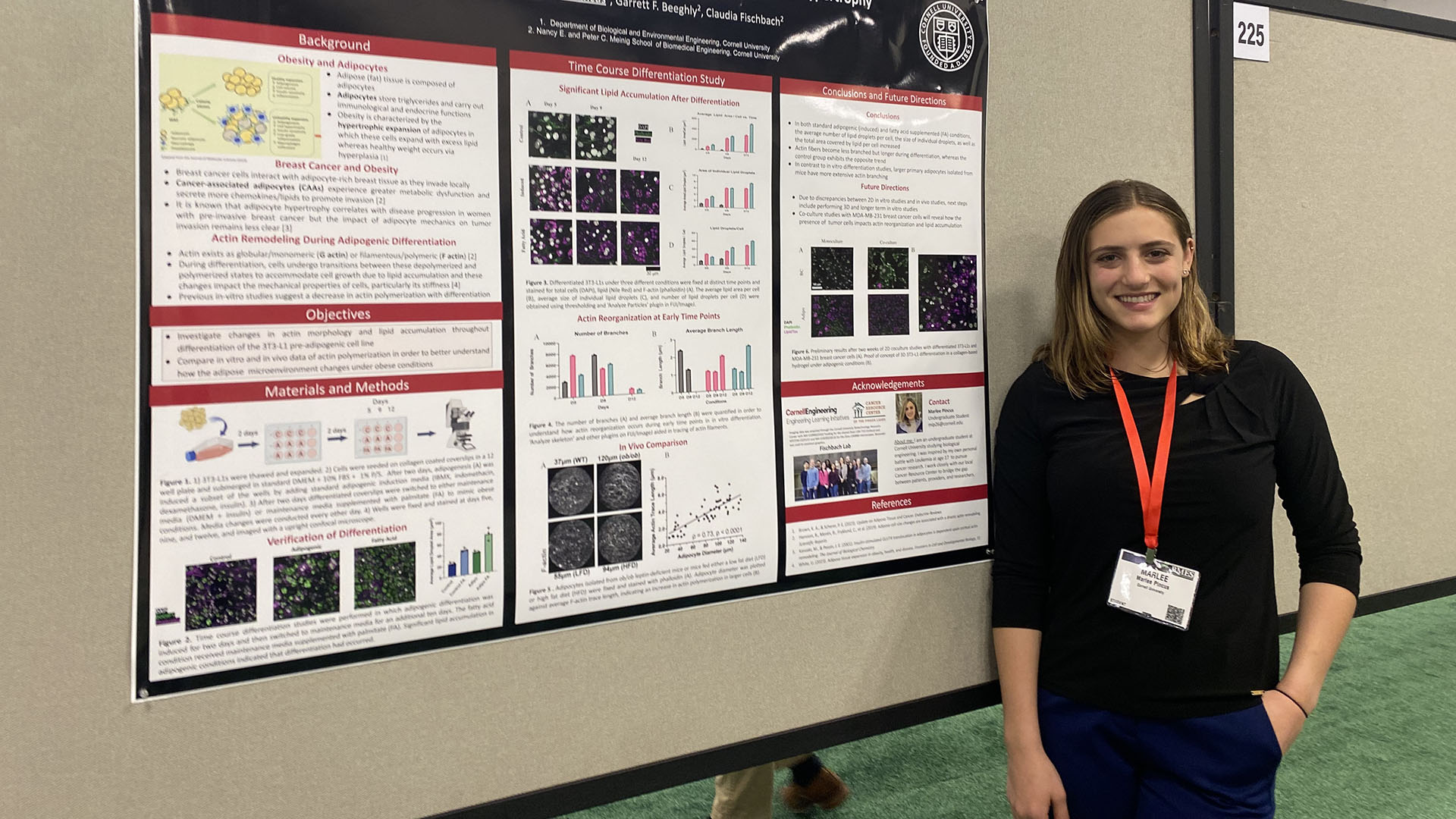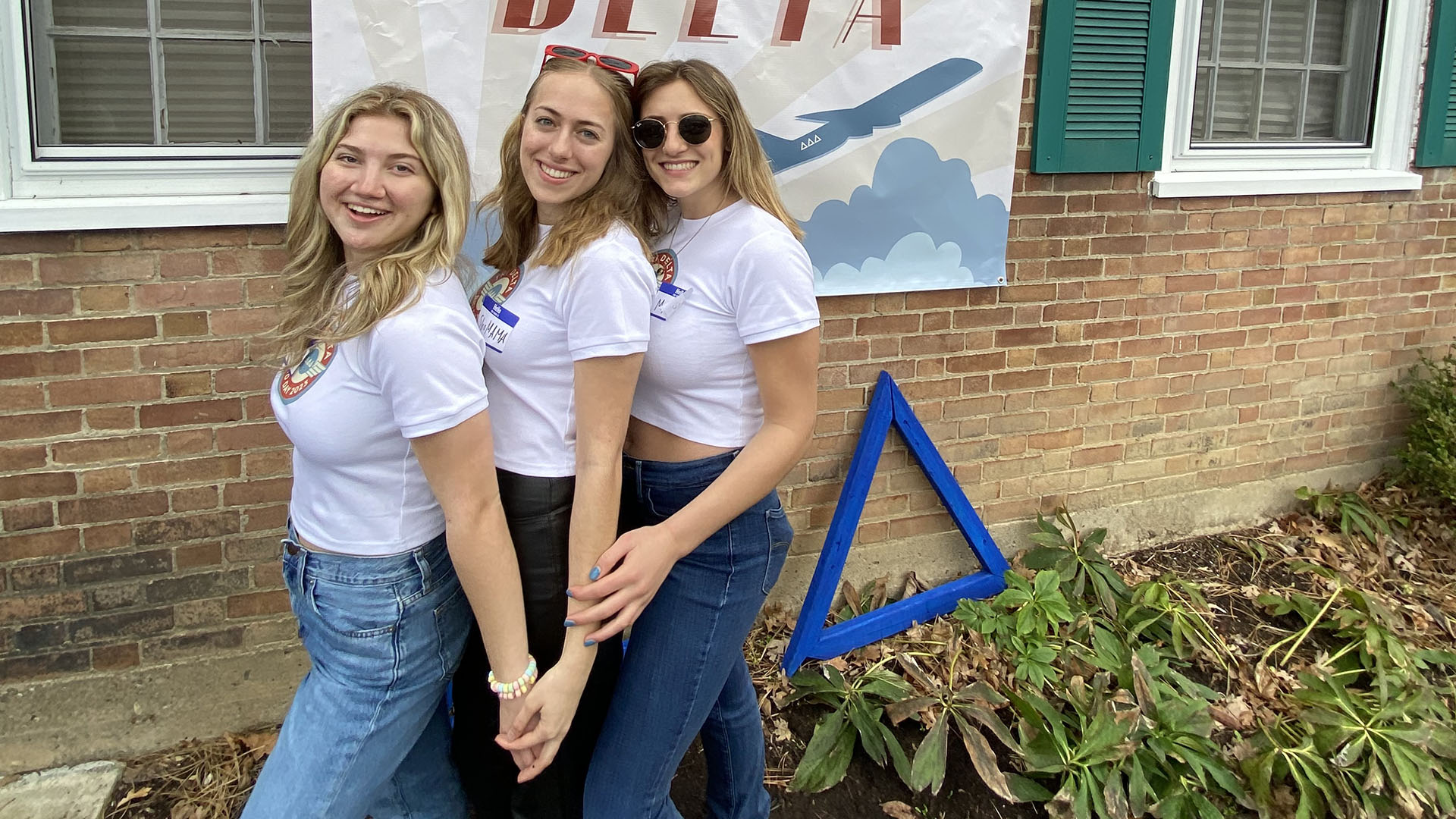How Marlee Pincus ’24 Found Community and New Perspectives at Cornell

By Kelly Kuehn, Student & Campus Life
Marlee Pincus ’24 was only a few weeks into her first semester at Cornell when she started feeling sick. Still transitioning to college life, she didn’t think anything of it at first. The flu was also going around her residence hall, so she thought her cough, fatigue, and fever would clear up. But as the weeks went by her symptoms didn’t get any better. They actually got worse.
Concerned about her prolonged symptoms, Pincus’ mother booked an appointment at urgent care in October 2018. Abnormal blood results sent Pincus to the hospital, where additional testing revealed she had acute lymphoblastic leukemia, a form of blood cancer. Instead of returning to campus, she began a treatment plan at Memorial Sloan Kettering Cancer Center in New York City—a sudden change that shook her to her core.
“My whole world was flipped upside down,” Pincus says in a piece she wrote for the Leukemia & Lymphoma Society. “Here I was, not even 18 yet, always had been healthy, and thriving at college. Now that was all taken away. It felt like the ground was crumbling beneath me and I couldn’t do anything about it.”

Restarting strong on the Hill
When the initial shock wore off, Pincus shifted her mindset and focused on her recovery. After two years of treatment, Pincus’ health improved enough where she could go back to school full-time. She could have resumed her studies closer to home, but she longed to be back on campus.
“It was my positive experience during my first six weeks at Cornell that fueled my desire to return,” Pincus says. “I loved all the unique things about Cornell that I could not find anywhere else, like the Dairy Bar, the Slope, and the beautiful trails around campus.”
Pincus returned to Cornell as a first-year student in the fall of 2020 and changed her major from biology and society to biological engineering, a shift influenced by her health journey.
“I really wanted to understand the biophysics of cancer and explore new treatments for the disease,” Pincus says.
Her community at Cornell had changed as well. She was now two years older than her first-year peers and, at times, struggled to relate to them. She was also attending Cornell as an immunocompromised student during the COVID-19 pandemic, so she had to be extra cautious when interacting with others.
“It was really difficult transitioning back during such a weird time for everybody,” Pincus says.
To help make that transition easier, Pincus looked for ways to become active on campus. She rejoined Cornell Hillel and made connections within Cornell’s Jewish community, became a Peer Leader at the Tatkon Center for New Students, and joined the Tri Delta sorority.
“I was really able to find my place at Cornell in this very unique situation by getting involved on campus,” Pincus says.
Pincus’ involvement also extends into the Ithaca community. Heavily involved in undergraduate research in Cornell’s biomedical engineering department, she also volunteers at Cayuga Medical Center and with the Cornell Cancer Partnership, a collaboration between the Cancer Resource Center of the Finger Lakes and cancer researchers at Cornell.
“I’m using my experiences as a researcher, an engineer and a former cancer patient to help bridge the gap between patients and researchers, which is really exciting,” Pincus says.

Embracing the nonlinear path
As she concludes her undergraduate experience, Pinus recognizes that she’s learned a lot both inside and outside the classroom, but one lesson stands out among the rest: Keep an open mind, because you never know where life will take you.
“Something I love about Cornell is how nonlinear the path can be,” Pincus says. “Prior to cancer, I was a planner. However, my experience has shown me the beauty of embracing unplanned opportunities. One experience within a student organization or a meeting with a professor can open a door and pave a new path for you.”
She also encourages fellow Cornellians to get involved on campus and seize opportunities that come their way.
“I’ve made great connections with peers and professors that have helped create a solid foundation at Cornell,” Pincus says. “I didn't think that I would find a home on campus the way that I have, and I’m so grateful for it.”
